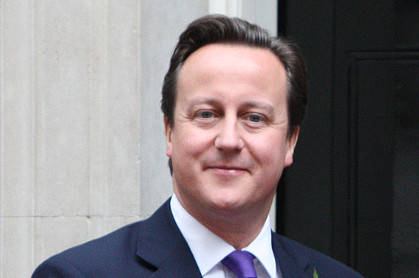This article is more than 1 year old
Happiness economics is bollocks. Oh, UK.gov just adopted it? Er ...
Opportunity doesn't knock; it costs us instead
Worstall @ the Weekend As is ever the case, by the time squares have caught on to the value of whatever hipsters have been doing this week, the latter are off doing something else entirely. Much the same happens with economic fashions: it takes time for those not actually involved in the subject to grok to what the cool kids are saying and by the time they do actually grasp it it's all entirely out of date.
Such is the seeming fate of the idea of happiness economics.
The basic idea seems simple enough: our aim in economic policy should be to do whatever it is that makes people happy or happier. After all, what greater goal is there than to be happy?
Call Me Dave has recently latched on to this and is insisting that we should be thinking about Gross National Happiness, as Bhutan has been doing, rather than that boring Gross National Product stuff.

PM 'Call me Dave' Cameron Photo by FCO/Patrick Tsui, licensed under CC2.0
There's quite a bit of intellectual heft behind the idea too: the bloke responsible for my misunderstandings of the subject, Richard Layard, is a major figure behind it and people like Joe Stiglitz and Paul Krugman are also largely on board. This is also obviously closely allied with the Easterlin Paradox, which shows that rising GDP doesn't seem to make people much, if at all, happier past a certain point – so why stress and strain to keep the economy growing?
Concentrate on other things, things that do increase that rate of self-reported happiness.
All of this is just fine of course, as long as one simple point does hold true. Do we humans actually prioritise becoming (or being) happy over other matters? If we do then the standard economists' phrase of “maximising utility” will be the same as maximising happiness and all is well with our new goal.
If the two differ, however, if trying to maximise happiness is not what people actually do, then using that as a target possibly isn't such a great idea. For, at this level of economics at least, we're not talking about what people ought to do, rather we're talking about what is it that people actually do, what do they desire to do, and how we should form public policy in order to help them to their desired goal.
At which point, enter Ed Glaeser and friends. They are pointing out that yes, humans do maximise their utility (this isn't in doubt for all that this is really saying is that “humans do stuff and we'll call what they do maximising their utility, whatever that happens to be”. It's definitional.) but we can observe that that maximisation doesn't appear to mean maximising their happiness.
There's a good description of their paper here. What they've done is gone and looked at the happiness surveys. And they note that certain geographic areas have lower self-reported levels of happiness than others.
Happiness can be found everywhere - even north of Watford
Unsurprisingly, lower levels seem to occur in the Rust Belt cities of the US. For us Brits this is akin to finding out that people in Burnley are less happy than those in Brighton. Um, yeah, big surprise, right? However, they also note two further things.
The first is that there is migration around the place and the second is that migrants generally take on the happiness quotient of the place they move to. Again, this isn't really all that unsurprising. If an area provides the things that make people happy then moving there will make you happy. If it's a shithole then perhaps it won't make you happy to go and live there.
They then note one further thing: people do, in fact, move to those Rust Belt cities; they do become less happy when they get there, but they don't then either not go there, nor bugger off again. Yes, there's even people who move to – rather than from – Burnley, and that's something that really does have to be explained.
The answer, of course, is that people are moving to places because maximising their utility is not the same as maximising their happiness. For example, old big cities that have lower populations than they were originally built for will have cheap housing. And cheap housing is just the same thing as getting a pay rise. So, we can say that people moving to a cheap city, which increases their real income, are prioritising income over happiness directly.
All of which makes something of a mockery of the idea that we should therefore be running the country to maximise happiness: because that's not what humans actually try to maximise.
